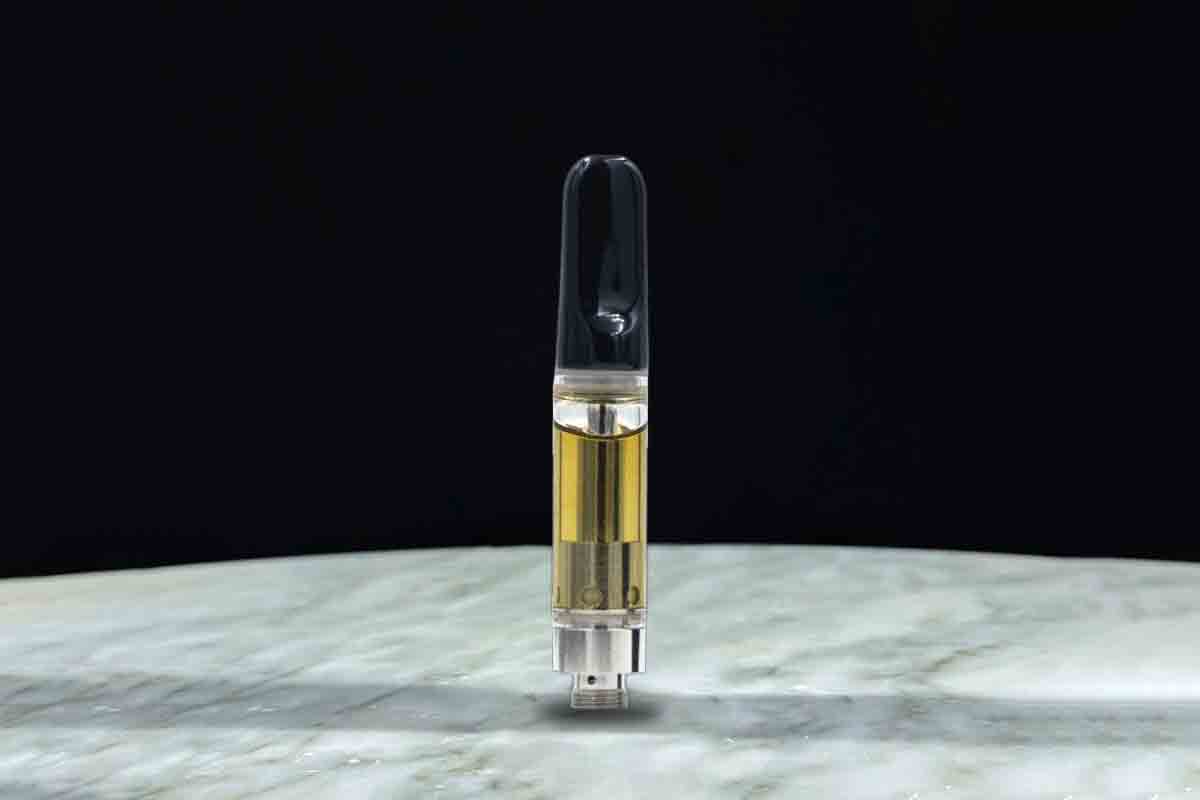Vaping in the Mosque: A Comprehensive Examination of Islamic Rulings and Etiquette
In an era where technology continually introduces new social customs, the question, “Can you vape in the mosque?” has become increasingly pertinent for Muslims worldwide. This article provides a detailed and authoritative exploration of this contemporary issue, drawing upon Islamic principles, scholarly opinions, and public health data to offer a comprehensive answer. We will delve into the religious permissibility of vaping, the sanctity of the mosque, and the potential harm to the community, ensuring a thorough understanding for both individuals who vape and the wider Muslim community.
Can You Vape in the Mosque? A Modern Question of Faith and Practice

The rise of vaping has presented a modern dilemma for many faith communities, and Islam is no exception. The central question of whether one can vape in a mosque is not merely a matter of personal choice but one that touches upon core tenets of Islamic faith and practice. While the Quran and Hadith do not directly mention electronic cigarettes, the principles they establish regarding health, purity, and respect for places of worship provide clear guidance. This article will navigate the complexities of this issue, examining the various scholarly interpretations and the communal responsibilities that inform the answer. The consensus among the vast majority of Islamic scholars and mosque administrations is a firm “no,” rooted in a holistic understanding of Islamic teachings that prioritize the well-being of the individual and the community, as well as the sanctity of the mosque as a house of Allah.

The Islamic Stance on Vaping: Haram or Halal?
The permissibility of vaping in Islam, or whether it is halal (permissible) or haram (forbidden), is a topic of significant debate among contemporary Islamic scholars. To understand the different viewpoints, it is essential to first grasp the foundational principles that guide such rulings.
- A. Understanding the Principles of Halal and Haram: In Islamic jurisprudence, the classification of actions into halal and haram is based on the Quran, the Sunnah (practices of the Prophet Muhammad, peace be upon him), scholarly consensus (ijma), and analogical reasoning (qiyas). A key principle is that everything is considered permissible unless explicitly forbidden. However, actions that cause harm are generally prohibited.
- B. Scholarly Perspectives on Vaping: A significant number of Islamic scholars and major fatwa councils have declared vaping to be haram. They often use the principle of qiyas, drawing an analogy to traditional tobacco smoking, which is widely considered haram due to its established health risks. The presence of nicotine, an addictive substance, in most e-liquids is a major factor in this ruling. The Quranic injunction, “And do not throw yourselves into destruction with your own hands” (Al-Baqarah 2:195), is frequently cited to argue against the use of any substance that is demonstrably harmful to one’s health.
- C. The Argument for Vaping as “Makruh” (Discouraged): A minority of scholars may classify vaping as makruh, or discouraged, rather than strictly haram. This view is sometimes taken when vaping is used as a tool for smoking cessation, framing it as the lesser of two evils. However, even in these cases, it is not encouraged as a recreational activity. This perspective acknowledges the potential for harm reduction but still advises against the practice.
- D. The Role of Intention in Islamic Rulings on Vaping: The Islamic legal principle of niyyah, or intention, plays a crucial role. If an individual vapes with the clear and sincere intention of quitting the more harmful habit of smoking, some scholars might view it more leniently. However, this does not override the general concerns about its health effects and addictive nature, especially within the sacred context of a mosque.
The Sanctity of the Mosque: A Place of Worship and Purity
The mosque, or masjid, holds a special and revered status in Islam. It is a place dedicated to the worship of Allah, and as such, certain rules of etiquette and conduct must be observed to maintain its sanctity.
- A. The Mosque as a House of Allah: Rules of Respect and Conduct: The Quran refers to mosques as “the houses of Allah” (An-Nur 24:36). This high esteem necessitates a level of decorum from all who enter. This includes dressing modestly, maintaining cleanliness, and engaging in quiet reflection and worship. Any act that detracts from this atmosphere of reverence is discouraged.
- B. Prohibitions within the Mosque: Parallels with Smoking: The prohibition of smoking in mosques is universally accepted. This is not only due to the health risks but also because the foul odor and the act itself are considered disrespectful in a house of prayer. The vast majority of mosque administrations and Islamic scholars extend this prohibition to vaping. The emission of vapor, regardless of its scent, is seen as a disturbance to the tranquility and purity of the space.
- C. Maintaining a Pure Environment for Worship: Purity, or tahara, is a fundamental concept in Islam and a prerequisite for prayer. The introduction of any foreign substance into the air, such as the aerosol from vaping devices, can be seen as compromising the purity of the environment where believers prostrate before God. The focus within the mosque should be solely on spiritual matters, and activities like vaping are considered a worldly distraction that has no place in such a sacred setting.
Health Implications of Vaping: An Islamic Perspective on Harming the Body
Islam places a strong emphasis on the preservation of health, viewing the body as a trust (amanah) from Allah. This principle is a cornerstone of the argument against vaping.
- A. The Quran and Hadith on Preserving Health: The Quranic verse, “and do not kill yourselves [or one another]. Indeed, Allah is to you ever Merciful” (An-Nisa 4:29), is a clear directive to avoid self-harm. The Prophet Muhammad (PBUH) also said, “There should be neither harming nor reciprocating harm.”11 This hadith establishes a broad principle that prohibits causing harm to oneself or to others.
- B. Scientific Evidence on the Harms of Vaping: Authoritative public health organizations like the Centers for Disease Control and Prevention (CDC) and the American Lung Association have warned about the health risks associated with vaping. E-cigarette aerosol is not harmless water vapor; it can contain harmful and potentially harmful substances, including nicotine, heavy metals like lead, volatile organic compounds, and cancer-causing agents. According to the CDC, “most e-cigarettes contain nicotine, which is highly addictive and can harm adolescent brain development.”
- C. The Islamic Principle of “Do Not Harm Yourselves or Others”: The Islamic legal maxim, “la darar wa la dirar,” is directly applicable to vaping. The potential for lung damage, nicotine addiction, and other health complications makes vaping a form of self-harm. Furthermore, the issue of secondhand vapor raises the concern of harming others, which is a significant ethical consideration in Islam. Therefore, based on the principle of preventing harm, vaping is considered impermissible by a majority of scholars.
Secondhand Vapor in the Mosque: Protecting the Congregation
The communal nature of the mosque makes the issue of secondhand vapor a critical concern. Protecting the well-being of all worshippers is a collective responsibility.
- A. What is in Secondhand Vapor? The aerosol exhaled by e-cigarette users can expose bystanders to a mixture of chemicals. Research has shown that this secondhand vapor can contain nicotine, ultrafine particles that can be inhaled deep into the lungs, and low levels of toxins known to cause cancer. While the concentration of these substances may be lower than in secondhand smoke from traditional cigarettes, they are not without risk.
- B. The Risk to a Vulnerable Population: Mosques are attended by people of all ages and health conditions, including children, the elderly, pregnant women, and individuals with asthma or other respiratory illnesses. These vulnerable groups are more susceptible to the adverse effects of airborne pollutants. Exposing them to secondhand vapor, even if the long-term effects are still being studied, goes against the Islamic principle of protecting the weak and vulnerable.
- C. The Consensus on Prohibiting Secondhand Smoke in Enclosed Public Spaces: Globally, there is a strong consensus, both in secular law and public health policy, to prohibit smoking and vaping in enclosed public spaces. This is based on the established science of the harms of secondhand exposure. Islamic teachings on public welfare and preventing harm align with this consensus, providing further justification for prohibiting vaping within the confines of a mosque.
Vaping During Ramadan: A Time of Spiritual Reflection and Abstinence
The holy month of Ramadan is a time of heightened spiritual devotion, self-discipline, and abstinence. The question of vaping during this month is a common one, and the answer is clear.
- A. Does Vaping Break the Fast? The overwhelming majority of Islamic scholars agree that vaping, like smoking, invalidates the fast. Fasting involves abstaining from intentionally introducing any substance into the body from dawn until sunset. The act of inhaling vapor from an e-cigarette is considered a form of consumption, as it involves the deliberate intake of substances, including nicotine and flavorings.
- B. The Spirit of Ramadan and Self-Restraint: Beyond the technical invalidation of the fast, vaping contradicts the very spirit of Ramadan. The month is an opportunity to purify oneself, break bad habits, and strengthen one’s willpower. Engaging in an addictive behavior like vaping runs counter to these goals. Ramadan is an ideal time to seek help in quitting both smoking and vaping, embracing the spiritual and physical benefits of a substance-free lifestyle. For those struggling with nicotine addiction, it is advisable to consult with a healthcare professional about cessation aids that do not break the fast, such as nicotine patches, and to seek guidance from a knowledgeable Islamic scholar.
The Global Fatwa Landscape on Vaping
The Islamic legal community has responded to the rise of vaping with a number of fatwas, or legal rulings, from various parts of the world.
- A. Fatwas from Major Islamic Bodies: Prominent Islamic organizations and fatwa councils, such as Al-Azhar in Egypt and the National Fatwa Council of Malaysia, have issued rulings declaring vaping to be impermissible. These rulings are typically based on the potential health harms, the presence of addictive substances, and the principle of preventing harm.
- B. The General Agreement on Vaping in Places of Worship: While there may be some level of academic debate on the absolute prohibition of vaping in all circumstances, there is a near-universal agreement among scholars and mosque leaders that vaping is not permissible within the sacred space of a mosque. The reasons for this are multifaceted, encompassing the preservation of the mosque’s sanctity, the protection of the congregation’s health, and the avoidance of distractions from worship.
Conclusion: Upholding Respect and Purity in the Mosque

In conclusion, while the debate around the Islamic ruling on vaping in general continues, the answer to the question “Can you vape in the mosque?” is a resounding and unequivocal no. The sanctity of the mosque as a house of worship, the Islamic imperative to protect one’s health and the well-being of others, and the overwhelming consensus of Islamic scholars and mosque administrations all point to the same conclusion. Vaping is an act that is incongruous with the spirit of reverence, purity, and communal responsibility that defines the mosque. Therefore, Muslims are obligated to refrain from vaping within the mosque premises, upholding the respect and purity of these sacred spaces.
Frequently Asked Questions (FAQs)
Is vaping considered haram in Islam?
The majority of Islamic scholars consider vaping to be haram (forbidden) due to its potential health risks, the addictive nature of nicotine, and the Islamic principle of avoiding self-harm. Some scholars may classify it as makruh (discouraged), particularly if used for smoking cessation, but it is not generally considered permissible for recreational use.
Can you vape outside the mosque premises ?
While vaping is prohibited inside the mosque, the ruling on vaping outside the mosque premises depends on the general Islamic stance on vaping. As the majority view is that it is haram or at least makruh, it is advisable to avoid it. Additionally, one should be mindful of the immediate surroundings of the mosque and not engage in any activity that could be seen as disrespectful.
Are there any “halal” vape juices?
The concept of “halal” vape juice is complex. Even if a vape juice is free from explicitly forbidden ingredients like alcohol or pork derivatives, the act of vaping itself is considered harmful by most scholars, which would render the practice impermissible. The focus of the prohibition is more on the act and its effects rather than the specific ingredients of the e-liquid.
What is the difference between smoking and vaping from an Islamic perspective?
From an Islamic perspective, there is little difference between smoking and vaping in terms of their ruling. Both are seen as harmful to health and addictive, and the same principles of preventing harm apply to both. The vast majority of scholars who prohibit smoking also prohibit vaping.
What should I do if I see someone vaping in the mosque?
If you see someone vaping in the mosque, it is best to approach the matter with wisdom and kindness. You can politely and privately inform the person that vaping is not permitted within the mosque. If you are not comfortable doing so, you can inform the mosque administration or the imam, who are responsible for upholding the rules of the mosque.
Does vaping invalidate wudu (ablution)?
Vaping in itself does not invalidate wudu (ablution). The acts that nullify wudu are specifically defined in Islamic jurisprudence and do not include smoking or vaping. However, as vaping is generally considered impermissible, one should refrain from it, especially when in a state of purity for prayer.








